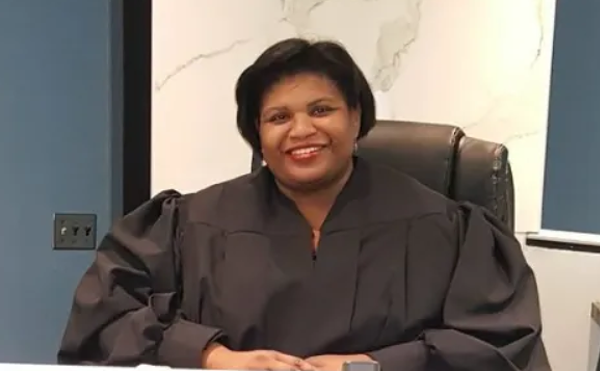A Detroit Free Press reporter had a legitimate claim to a Fifth Amendment defense, a federal judge ruled Tuesday.
Veteran journalist David Ashenfelter had been ordered three times to submit to a deposition in a former federal prosecutor's lawsuit against the U.S. Justice Department. The former prosecutor, Richard Convertino, is seeking the identity of an unnamed source or sources in a January 2004 article Ashenfelter wrote about an internal investigation into Convertino's handling of a high-profile terrorism-related trial following 9/11.
Convertino won convictions against three of the four men tried, but those verdicts were overturned after it was discovered Convertino withheld evidence from the defense.
Convertino alleges that the leak was a violation of his rights under the federal Privacy Act. He can't win his case without knowing who talked to Ashenfelter, his attorney has said.
Ashenfelter faced the possibility of jail or fines for contempt of court if he didn't cooperate with the deposition.
Although U.S. District Judge Robert Cleland had previously ruled that Ashenfelter had to answer questions from Convertino's attorney, Tuesday in a closed-door deposition Cleland agreed with Ashenfelter and the paper's attorneys that the Pulitzer Prize winner had sufficient grounds for a Fifth Amendment defense — in other words he could refuse to answer questions on the grounds of possible self-incrimination.
Ashenfelter has argued that he's covered by the Fifth Amendment's self-incrimination protections because the testimony could lead to charges he violated the U.S. Espionage Act and other federal laws. Last month he filed a sealed deposition detailing how he could be incriminating himself by discussing his unnamed sources.
Cleland consulted that affidavit during Tuesday's 2 1/2 hour closed-door deposition. While it went on, he was near at hand to sustain or overrule objections. At the key question of naming sources, Cleland agreed the Fifth Amendment protections applied and that the reporter did not have to answer.
Richard Zuckerman, representing the Free Press, said that the judge found the Fifth Amendment claim had been "validly asserted." The Free Press attorneys seemed moderately pleased at the outcome — the deposition, technically, has been suspended. "I think it's a good resolution for today," said Zuckerman.
Convertino's attorney, Stephen Kohn, said he would ask the court to reconsider. He has until May 5 to file a written brief.
Following the hearing, Ashenfelter refused to answer any questions on advice of the Free Press attorneys, including the question of what he was planning for the evening.
But he did smile.





